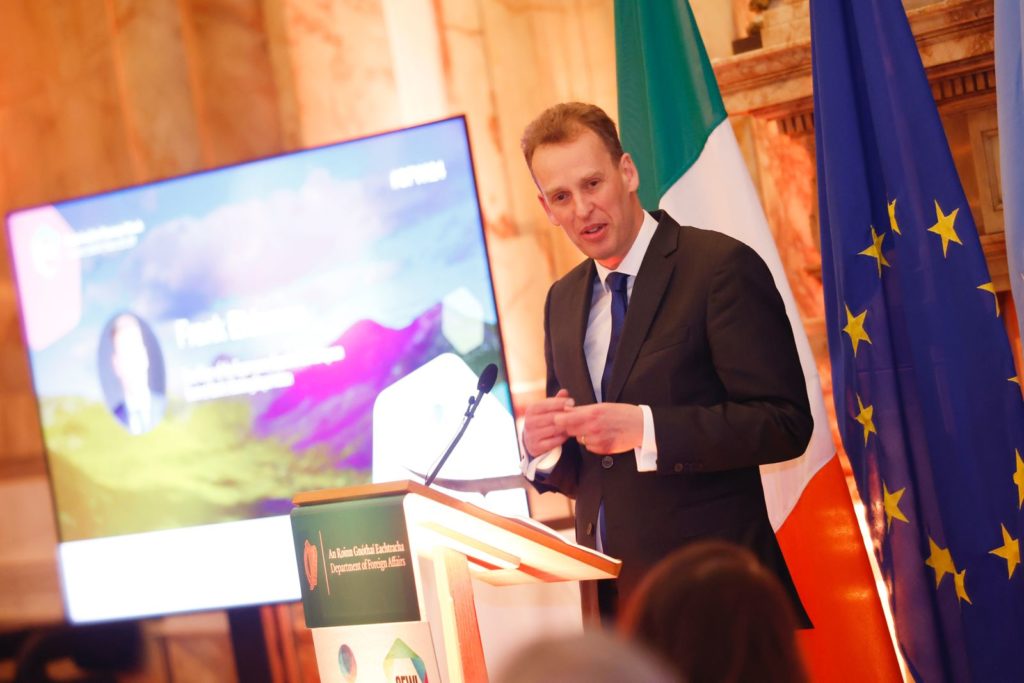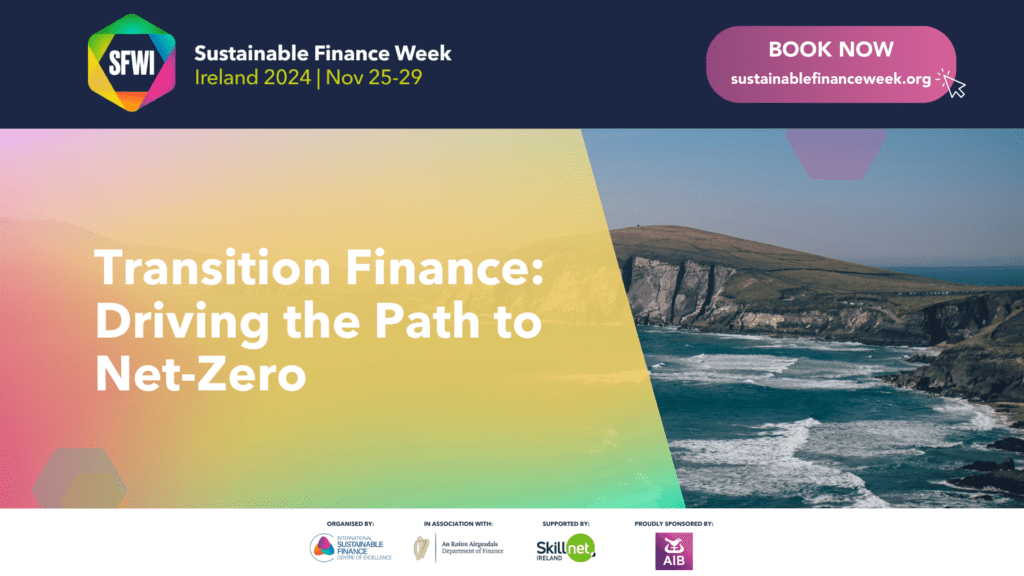Frank Elderson Honoured with International Leadership in Sustainable Finance Award
As part of the Sustainable Finance Week Ireland 2024 (SFWI) programme, global leaders in finance and sustainability gathered for the SFWI Dinner on Tuesday, 26th November. This prestigious event celebrated exceptional contributions to sustainable finance and marked a key highlight of the wider SFWI programme. During the dinner, the International Leadership in Sustainable Finance Award was presented to Frank Elderson, Member of the Executive Board and Vice-Chair of the Supervisory Board of the European Central Bank. This award recognises Elderson’s outstanding efforts in driving innovative strategies that equip financial institutions to address the challenges of climate adaptation and sustainable development. Elderson’s work has been instrumental in embedding sustainable finance principles across the sector, ensuring that financial systems are resilient and adaptive to the evolving demands of environmental and social challenges. Ireland’s Leadership in Sustainable Finance The SFWI Dinner also underscored Ireland’s commitment to leadership in sustainable finance. The event took place as part of a week-long programme showcasing Ireland’s efforts to advance sustainability and financial innovation. A key development highlighted during the dinner was the recent government approval to begin negotiations for establishing a UNDP Project Office in Dublin. This initiative will enhance Ireland’s position as a global leader in sustainable finance and foster international collaboration on critical sustainability goals. Sustainable Finance Week Ireland 2024 has brought together prominent leaders, innovators, and stakeholders to drive collective action on sustainable finance. From policy advancements to practical solutions, the week’s events continue to highlight the transformative potential of sustainable finance in shaping a better future for all.
Frank Elderson Honoured with International Leadership in Sustainable Finance Award Read Post »




